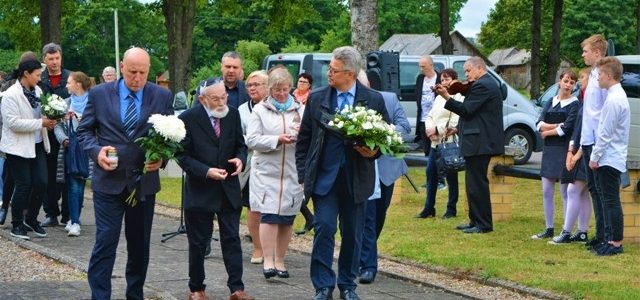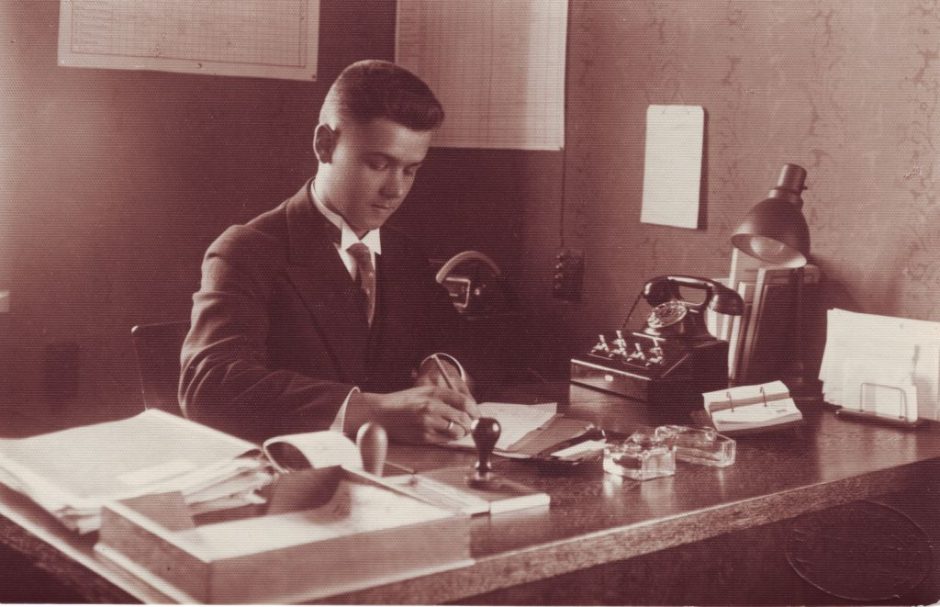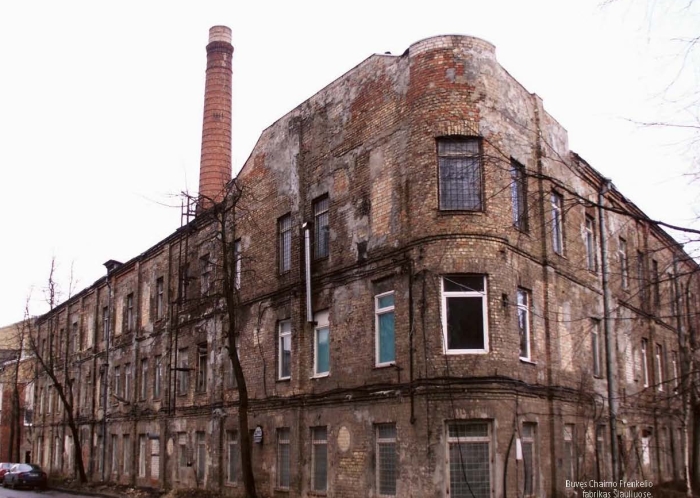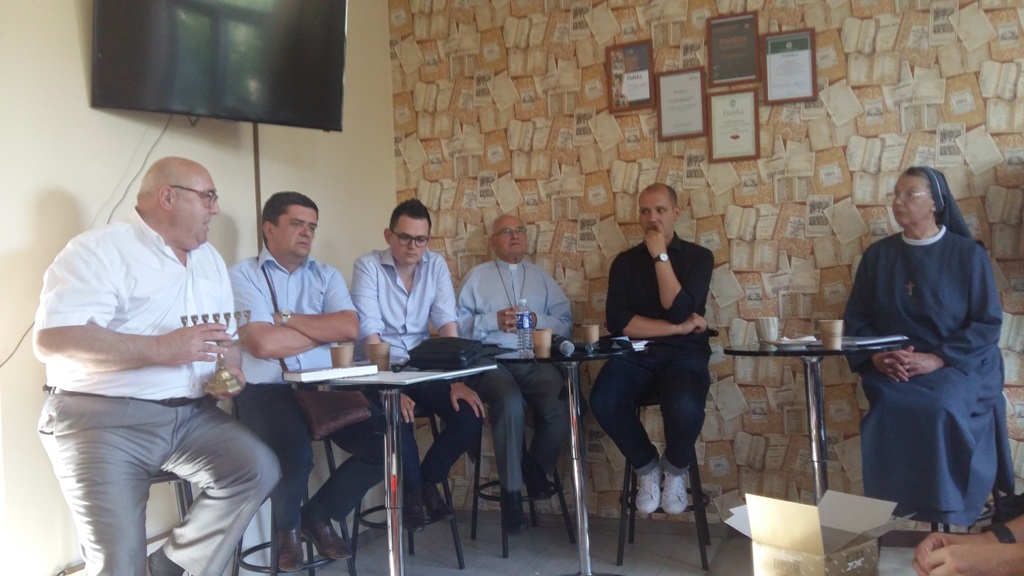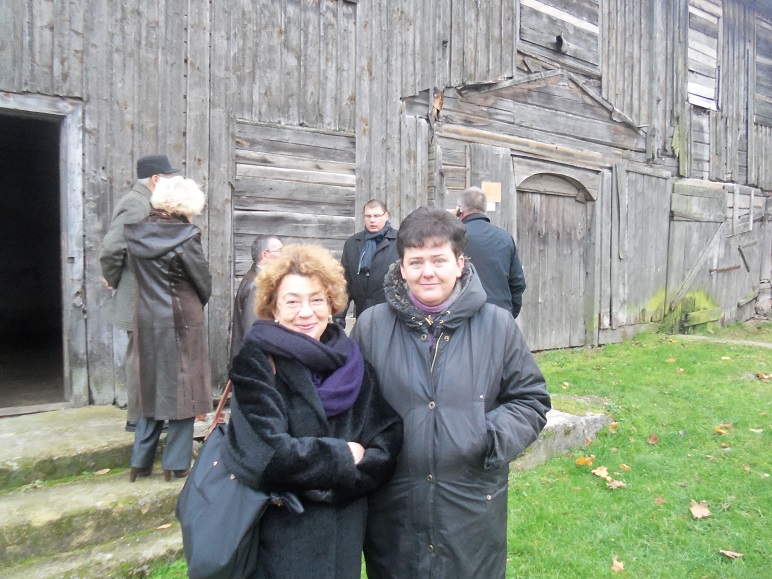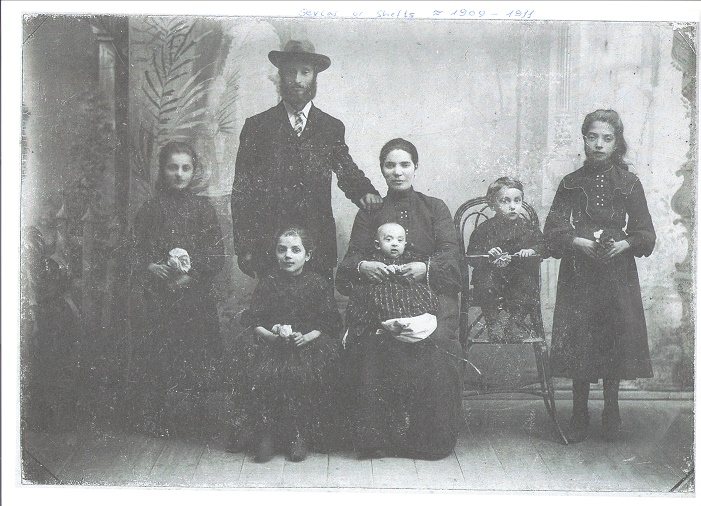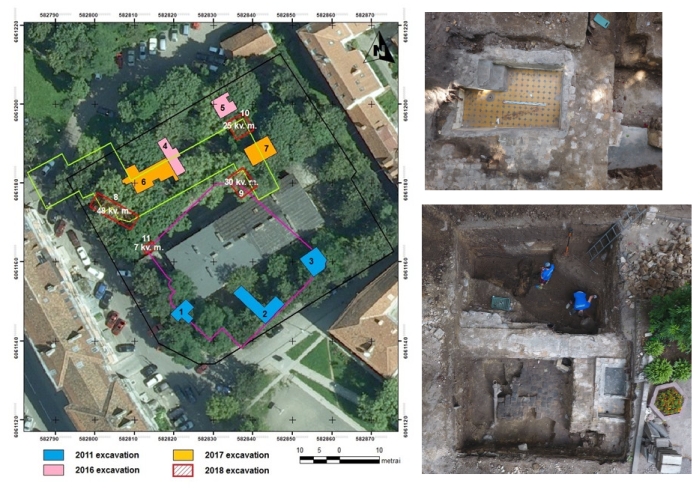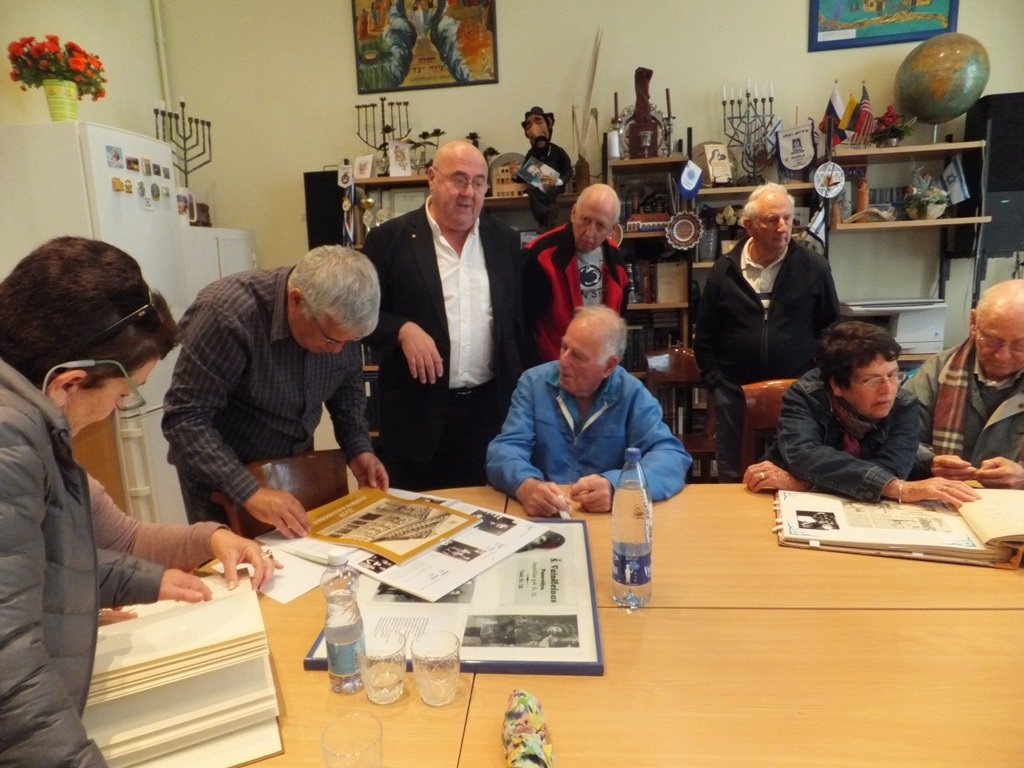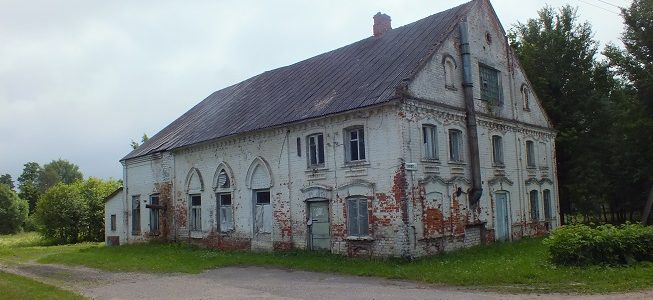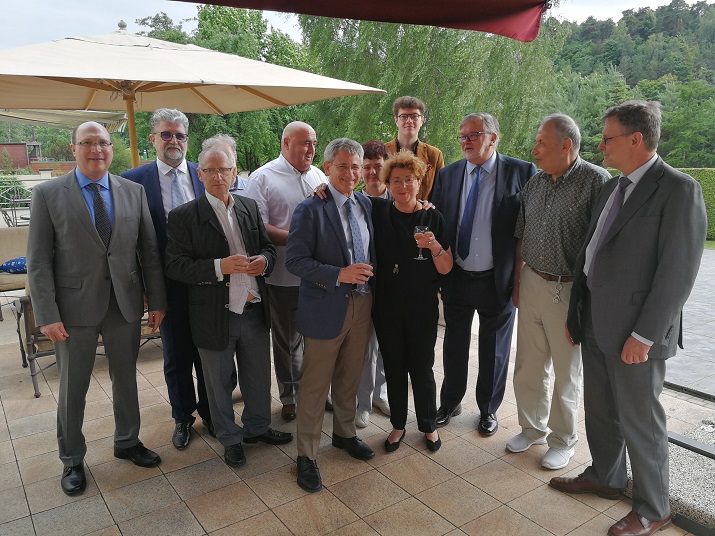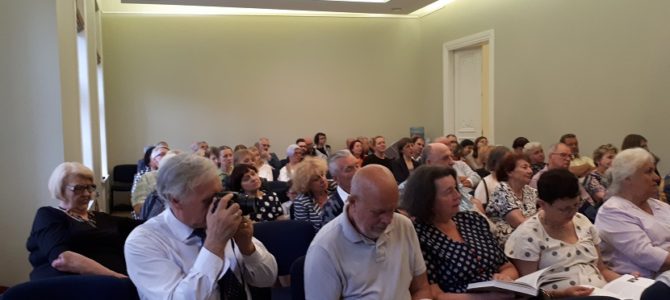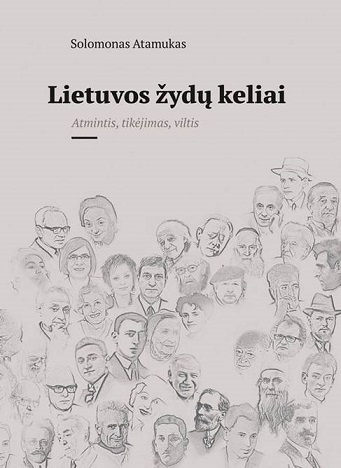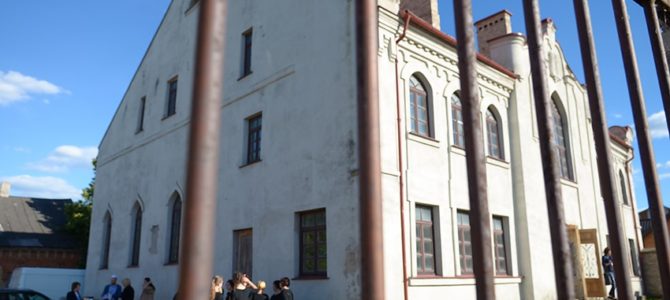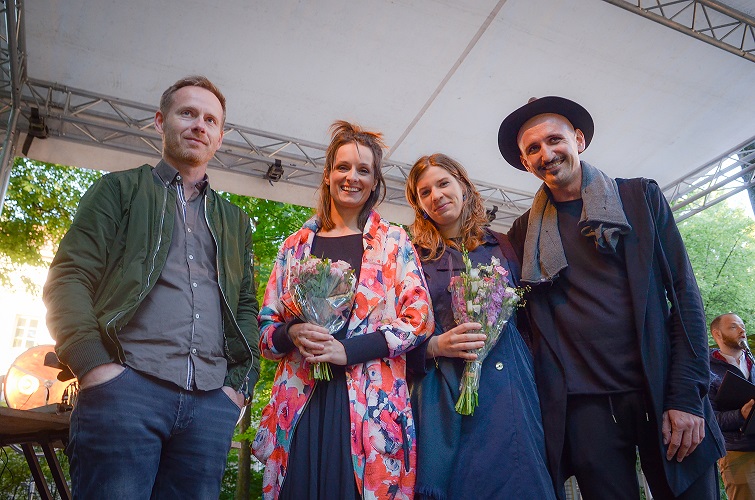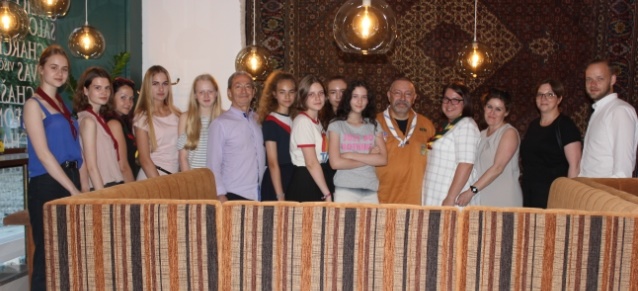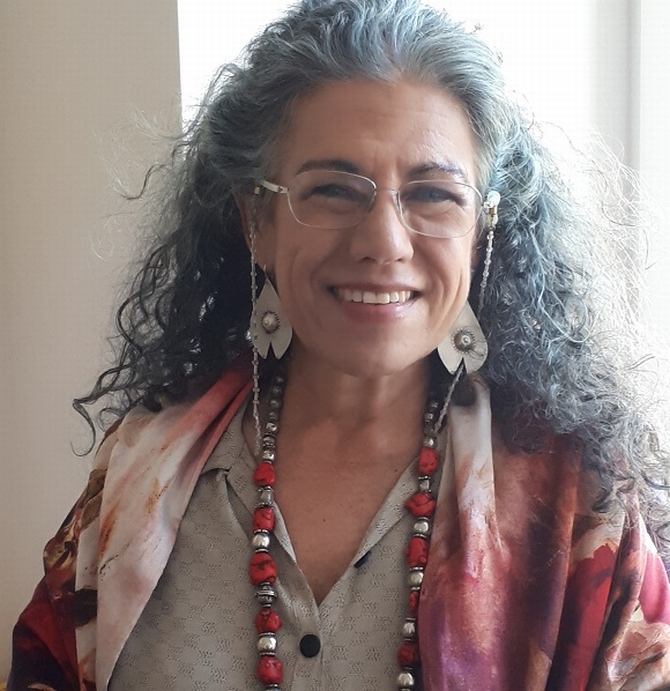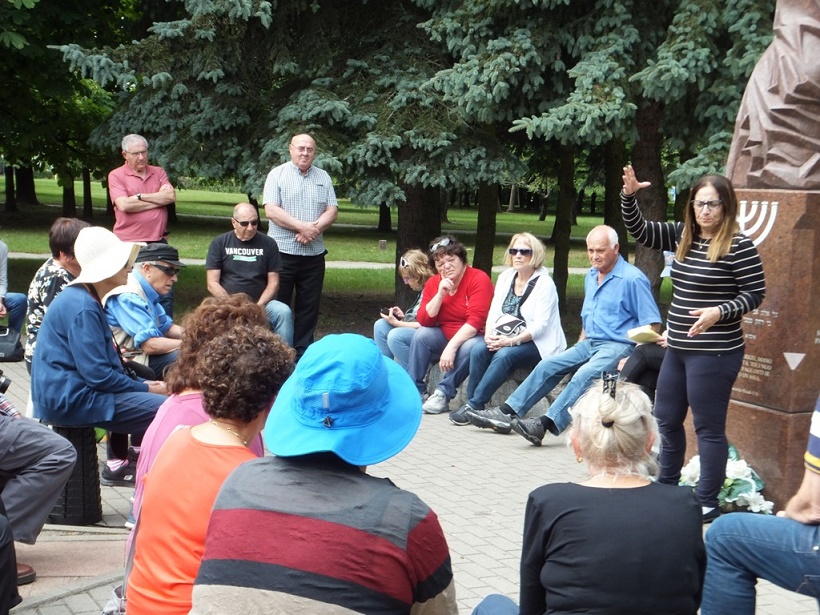
Under an agreement of several years’ standing Edit Perry and Ewa Baranska have led another delegation of people from Jerusalem, Tel Aviv and other Israeli cities to Panevėžys and the Panevėžys Jewish Community. Many are adults involved in continuing education during the academic year on the topic of Jews from the Baltic states. During the summer they strive to visit as many sites as possible where they had family in Lithuania, including Panevėžys. The students were keenly interested in the photography exhibit and archival documents illustrating Jewish life before World War II preserved at the Panevėžys Jewish Community.
Panevėžys Jewish Community chairman Gennady Kofman and member Jurijus Smirnovas delivered lectures at actual historical sites inside the former ghetto territory and the old Jewish cemetery which is now called Memory Square.
Smirnovas shared his experience of World War II with the visitors. He was a small child at the concentration camps in Panevėžys and Šiauliai and lost his family members.


